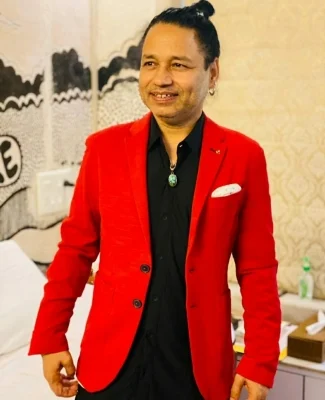Kailash Kher Flags India’s Concert Infrastructure Issues, Advocates Art-Led Progress Through KKALA
Mumbai, July 16 – Celebrated Indian singer Kailash Kher, known for his powerful vocals and soul-stirring music, has raised concerns about India's booming concert culture and the lack of adequate infrastructure to support it. In an exclusive conversation with IANS, the "Teri Deewani" hitmaker emphasized that progress should be measured not by weapons, but by the advancement of minds.
As concerts grow in scale and popularity across India, issues such as insufficient public washrooms, lack of emergency services, and poor crowd management have drawn criticism. Kher pointed out that while audiences are often swept away by the excitement of the moment, basic necessities are overlooked.
“Right now, people get lost in the excitement and forget basic amenities. But that’s also part of the problem,” said the singer.
“Once sensibilities improve through art, these things will evolve. True progress isn’t about missiles or mines—it’s about advanced minds.”
A Wake-Up Call for India's Cultural Events
Kher’s observations echo a growing concern in India’s entertainment sector. As international-style concerts and music festivals become more common, infrastructure in many cities has struggled to keep up. Kher believes that as art and education evolve together, the public’s expectations—and the quality of experiences—will rise in tandem.
“Complete education creates evolved individuals who can uplift society,” he emphasized.
Music Beyond Bollywood: Embracing Diversity and Roots
The 50-year-old artist also commented on the changing landscape of Indian music, noting that the lines between Bollywood and independent music are increasingly blurred.
“I don’t label music as Bollywood or non-Bollywood. Music is music,” he stated.
Kher has been actively supporting India’s folk musicians, Manganiyars, and Ghumantu tribes, helping them gain visibility on national and international platforms. According to him, this resurgence of regional and independent music represents a healthy shift in India’s musical sensibility.
KKALA: Nurturing Authentic Indian Talent
One of Kher’s most passionate initiatives is the Kailash Kher Academy for Learning Art (KKALA). The academy, he said, was born out of a need to counter the growing trend of Indian singers blindly mimicking Western styles.
“Even educated people end up parroting. We want to nurture swans—people who understand aesthetics, real lyrics, and genuine poetry,” he explained.
KKALA aims to offer structured training in Indian music, art, and creativity, with a strong emphasis on originality and sensibility. The initiative provides a much-needed platform for underprivileged yet talented individuals, many of whom have had to rely on unstructured, experience-based learning.
“In India, many talented people learn by experience, which is admirable—but they lack structure. KKALA provides that method,” Kher added.
Tackling Mental Health Through Art
One of the most ambitious goals of KKALA is to integrate art and music education into schools to address India’s growing mental health crisis. From students to teachers and school trustees, Kher observed that everyone is under mounting pressure, yet very few are equipped with tools to cope.
“Art, music, and creativity have the power to reduce stress,” he said.
“Our aim is to reach schools and help ease this pressure through creative expression.”
KKALA’s mission aligns with a broader global movement to embed mental wellness in education systems using creative outlets like music therapy, visual arts, and storytelling.
A Cultural Visionary Beyond the Stage
Kailash Kher’s legacy goes beyond chart-topping hits and unforgettable stage performances. Through his social activism, promotion of traditional art forms, and focus on mental well-being, he continues to redefine the role of an artist in modern India.
Whether it’s pushing for better public facilities at concerts, reviving India’s folk traditions, or helping students manage stress through music, Kher remains a cultural reformer as much as a performer.


